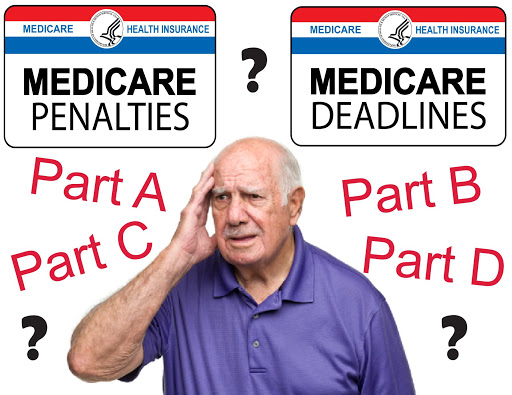When we’re younger, the many things to know about Medicare can feel overwhelming. So we tend to put off learning about the process until we’re getting close to the point of eligibility for this important health care program.
As you grow older, you might ask yourself, “What do I need to know about Medicare now?” That’s what we’ll discuss here so that, if your retirement is coming soon, you’ll have a firmer grasp on the workings of the Medicare process.
Let’s begin with a look at where Medicare’s core funding comes from.
What Do I Need to Know About Medicare?
The essential things to know about Medicare depend on the type(s) of coverage you have. Let’s look at the four parts of Medicare, what each covers, and how they differ.
Part A
Part A (hospitalization insurance) covers hospital stays and other inpatient care. You can get Part A benefits directly from the government or by enrolling in a Medicare Advantage plan (as discussed below, with Part C).
Part B
Part B (medical insurance coverage) pays part of the fees from doctors and other health care providers, outpatient care, home health care, durable medical equipment, and certain preventive services.
Part C
Part C (also known as Medicare Advantage) is a privatized version of Medicare offered by various health insurance companies.
Medicare Advantage combines everything you get in Parts A and B, usually with added benefits, such as prescription drugs, dental, vision, and wellness perks. In other words, it replicates a comprehensive employer plan.
So you can choose to sign up for traditional Medicare: Parts A, B, and D, and a supplemental Medigap policy. Medicare Part C has a monthly cost, in addition to the Part B premium, that varies depending on your chosen plan.
Part D
Part D covers prescription drugs. It is available only from private insurance companies, either through Medicare Advantage plans that include prescription drug coverage or plans that provide Part D coverage by itself.
What Is Medicare and Who Pays for It?
Medicare is a U.S. government health care program available to seniors and those with specific disabling conditions—such as end-stage renal disease (ESRD). The main components of Medicare are paid as part of working people’s social security taxes.

Today’s tax rate for social security is 6.2 percent for both the employer and the employee or 12.4 percent overall. The current rate for Medicare is 1.45 percent for both the employer and the employee or 2.9 percent overall.
However, the only part of Medicare fully covered by social security taxes is Part A. Part B partially covers certain expenses like doctor visits, outpatient surgery, labs, and medical equipment.
When Can You Start Medicare?
Ordinarily, Medicare benefits start at age 65. That is unless you qualify because of a disability. If you’re already receiving Social Security or Railroad Retirement Board benefits, you’re enrolled automatically when you turn 65.
Conditions for Medicare Eligibility
If you’ve worked at least ten years (40 quarters) while paying Medicare taxes, you will not have monthly premiums for Medicare Part A (hospital insurance) benefits.
If you haven’t worked or have worked fewer than ten years, you may qualify for premium-free Part A when your spouse turns 62, provided they have worked at least ten years while paying Medicare taxes.
For Medicare eligibility, though, you need to be 65 years old. You also need to be an American citizen or have been a legal permanent resident for a minimum of five continuous years.
At what age does Medicare start? Always 65, unless you have an authorized disability or health condition.
The Medicare Initial Enrollment Period (IEP)
If your circumstances are such that you are not enrolled automatically at age 65, you need to enroll manually during the initial enrollment period (IEP). The IEP starts three months before your 65th birthday includes the month you turn 65, and ends three months after that.
You should enroll for Medicare coverage during the three months before you turn 65. If you wait until the three months following your birthday, you can expect coverage delays.
It’s wise to enroll for Medicare Parts A and B (if you intend to use both) during the IEP. Otherwise, you will need to wait for the open-enrollment period in the fall, and doing so will cause a late penalty for Part B to kick in, and that penalty increases the longer you delay enrollment.
Medigap
Those who enroll in traditional Medicare would be well advised to sign up for Medigap, a supplement offered by private insurance companies to help cover deductibles, co-payments, and other coverage gaps.
Medicare itself has limits on what it will cover. It pays for a lot, but not all, of the cost for covered health care services and supplies. Eligibility for Medigap coverage requires concurrent enrollment in both Medicare Part A and Part B.
Medigap enrollment is a smart choice if you can afford it. How much does Medicare cost? a fair amount by itself, but the only parts covered (all or partially) are Parts A and B.
This is why so many people opt for Medicare Advantage (Part C), especially if they can find a private plan that provides Part D’s prescription coverage along with all the other coverage components.
Be sure to choose the Medicare plan or plans that are right for you. What you need to know about Medicare is not necessarily the same as what I need to know about Medicare. You’re better off consulting with a doctor or social services worker.
Sixty-Five Will Be Here Before You Know It
At this point, you might still be asking yourself, “What do I need to know about Medicare?” We would answer: there’s always more to learn about Medicare and its supplements (which continue into other letters of the alphabet from what we discussed here).
There are still many details about Medicare coverage that we weren’t able to cover in this brief article. But if you would like more information on this important topic, go to the Medicare.gov website for the most accurate and up-to-date information.
If you think reading this insurance-related article was a productive use of your time, come back to our site soon and learn more about this topic and others.




